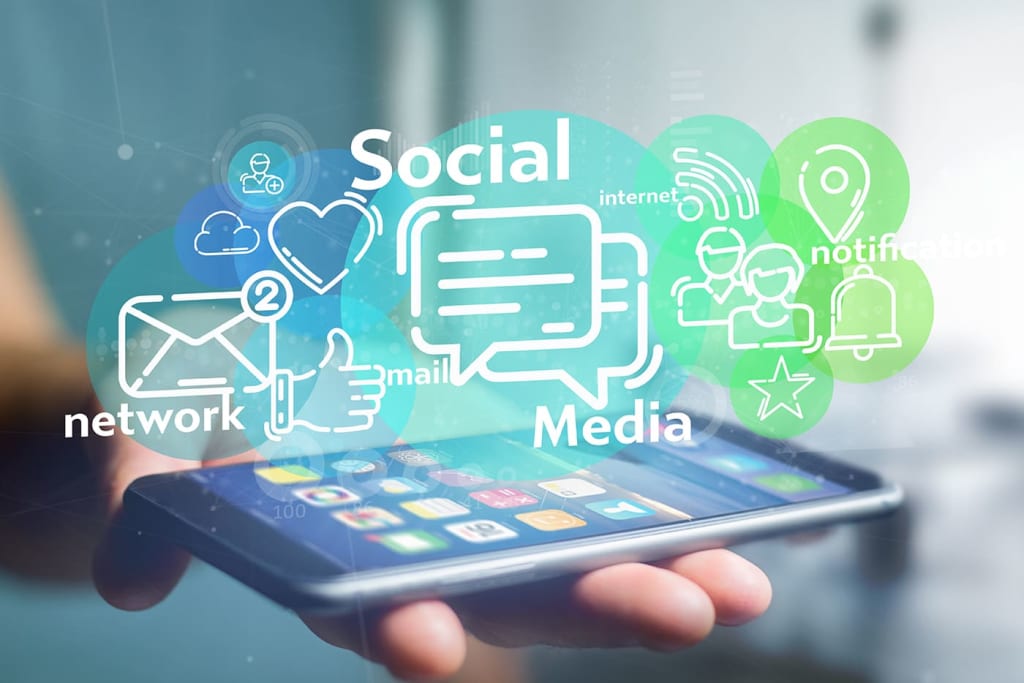The Impact of Social Media on Mental Health and Well-being
Navigating the Impact of Social Media on Mental Health and Well-being in the Digital Age

In today's digital age, social media has become an integral part of our lives. It has changed the way we communicate, interact, and even think. While social media has its benefits, such as connecting with friends and family, it also has its downsides. One of the major downsides is its impact on mental health and well-being.
The constant use of social media can lead to anxiety, depression, and other mental health issues. It can also affect our self-esteem and cause us to compare ourselves to others, leading to feelings of inadequacy and low self-worth.
Studies have shown that social media use is associated with increased levels of anxiety, depression, and stress. It can also contribute to sleep disturbances, which can further exacerbate mental health issues. The constant barrage of information, news, and updates can overwhelm the brain and cause cognitive overload, making it difficult to focus and concentrate.
One of the biggest problems with social media is the way it can distort reality. People often present an idealized version of their lives online, showcasing only the best parts and hiding the struggles and challenges. This can create a false sense of reality and lead to feelings of inadequacy and low self-esteem.
Social media can also lead to the formation of echo chambers, where people only engage with others who share their beliefs and opinions. This can create an us-vs-them mentality and make it difficult for individuals to consider alternative perspectives. This can further exacerbate mental health issues and lead to a lack of empathy and understanding.
Despite its downsides, social media can also have a positive impact on mental health and well-being. It can provide a sense of community and support, especially for those who may not have access to a physical community. It can also be a source of inspiration and motivation, connecting individuals with like-minded people who share their interests and goals.
To mitigate the negative impact of social media on mental health, it is important to set boundaries and limits on its use. This may involve limiting the amount of time spent on social media, or taking breaks from it altogether. It is also important to be mindful of the content consumed on social media and to seek out positive and uplifting content.
Another way to reduce the negative impact of social media is to cultivate a healthy relationship with it. This may involve unfollowing accounts that contribute to negative feelings, and engaging with accounts that promote positivity and mental health. It can also involve using social media as a tool for self-expression and creativity, rather than as a means of validation or comparison.
In conclusion, the impact of social media on mental health and well-being cannot be ignored. It has both positive and negative effects, and it is up to individuals to navigate its use in a way that promotes mental health and well-being.
Setting boundaries and limits on social media use can help individuals avoid the negative effects of social media, such as cognitive overload and anxiety. Mindfulness in consuming content on social media and seeking out positive and uplifting content can also help reduce the negative impact.
It is also important to cultivate a healthy relationship with social media. This means using it as a tool for self-expression, creativity, and connection, rather than as a means of validation or comparison. By focusing on the positive aspects of social media, individuals can enjoy its benefits without compromising their mental health and well-being.
Overall, social media is a powerful tool that has the ability to connect individuals and build communities. However, it is important to recognize its potential negative impact on mental health and take steps to mitigate it. With mindfulness and a healthy relationship with social media, individuals can enjoy the benefits of online communities while maintaining their mental health and well-being.
About the Creator
Muhammad Sarib Ali
Sarib is an experienced Content Writer with 5 years of experience in the CNet industry. He is a creative and analytical thinker with a passion for creating high-quality content and crafting compelling stories.






Comments
There are no comments for this story
Be the first to respond and start the conversation.